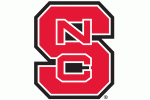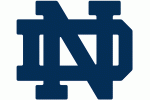So far, Isaiah Hicks isn’t having the kind of dominant season for UNC that many predicted.

Coming into this season, one of the most hyped players in all of college basketball was Tar Heel Isaiah Hicks. After two years of contributing on and off in a limited bench role, he broke out last season as the best sixth man in the ACC and one of the best in the entire country. Hicks averaged 8.9 points and 4.6 rebounds on 61.4 percent shooting in just 18.1 minutes per game. His per 40 minutes numbers indicate an even greater impact, too: 19.8 points (second on the team) and 10.2 rebounds.
Backing up Brice Johnson, Hicks relished the role of coming off the bench and manhandling backup units. You could easily make the case that he was capable of starting for any team in the country, and he was arguably the second-best Carolina player for large stretches. With all that, it would make sense why many thought Hicks would take another leap with more minutes and a bigger role.
But that hasn’t quite happened this season. First, let’s start with what he has been doing well in the starting lineup: getting buckets. Hicks has upped his field goal attempts per game from 5.4 to 8.1 while slightly increasing his shooting percentage (currently at 61.8 percent). That means he’s averaging a career-high 12.7 points per game, which actually becomes 21 points over 40 minutes (still only fifth on the team). Hicks’ offensive moves haven’t left him in his senior year, and he can score in a variety of ways in the paint. His offensive rating of 124.0 (points scored or produced per 100 possessions) is great, too.
The disappointments begin in the other areas of his game. He still has a big issue with fouling and, with essentially taking the same spot as Johnson in the lineup, he’s only up to 24.3 minutes per game. That’s four fewer minutes than Johnson averaged last year, and Johnson also had Hicks to back him up. Sure, Hicks has the deadly offensive threat of Tony Bradley coming in for him, but he lacks experience and defensive polish. It’d be really helpful to UNC and Roy Williams’ lineups and strategies if Hicks could reduce his current rate of three fouls every game.
The most glaring statistic when looking at box scores and totals for Hicks is his rebounding. Simply, he is not a good rebounder, with Kennedy Meeks and Tony Bradley doing a lot of the heavy lifting down there. While playing six more minutes a game, Hicks has only upped his rebounding average from 4.6 to 5.1. That’s not going to cut it, and it now appears he’s the worst big man rebounder on the UNC squad.
It’s truly bizarre that his rebounding has dropped off in such a way—the per 40 minutes numbers show a decrease from 10.2 to 8.4—and Carolina success is reliant on dominating the boards. Meeks has been out of his mind on the boards lately, but he’s most likely not going to keep that up, and Hicks needs to be better at boxing out and positioning himself. For a guy who had 30 and 30 in a high school championship game, it’s a little embarrassing that Hicks is barely above five rebounds per game.
The other big sin in Hicks’ game this season is his poor defense. Much like his rebounding numbers suggest, he could potentially be the worst big man defender for UNC, giving up more points than both Bradley and Luke Maye. His defensive rating is just 92.5. While that stat is nowhere near an exact science, just watching Hicks indicates that his defensive awareness isn’t where it should be. He was an awful pairing with Johnson on the defensive end last year, and he’s having similar troubles with Meeks (who, by the way, has been terrific in this area).
Right now, the Tar Heels have a really good low-post scorer who doesn’t rebound or defend all that well in Hicks. Why hasn’t he improved or stepped up this year? The biggest culprit might be Hicks adjusting to the starting lineup. He was so good for so long coming off the bench, and that brings entirely different circumstances than starting every game. Williams is relying on Hicks to be better earlier and more often, not just in spurts when better players are sitting. So far, he hasn’t always been up to the task.
In the greater scope of things, it’s extremely frustrating to see Hicks not elevate his game more. Williams has continually shown in his ability to develop guys throughout their time in Chapel Hill; just look at Johnson through his four years. But that’s not happening with Hicks, and it could certainly hurt the team’s chances in the ACC, as well as recruiting down the line. Yes, it’s hard to develop players into All-American talent, but you would think that with Williams and his coaching staff, combined with Hicks’ raw talent and athleticism, he should be one of the best seniors in the country right now. He isn’t.
While Joel Berry II is definitely the most important player for the Heels this season—as we’ve seen in recent games in his absence—Hicks hitting a ceiling lower than anyone expected also limits UNC’s ceiling. This team isn’t as deep as last year’s and doesn’t have someone as dominant as Johnson. The 1, 3, and 5 spots are settled and playing well. We knew the 2-guard would remain a mystery and a competition. We just didn’t expect the power forward position to be so underwhelming to start.



















